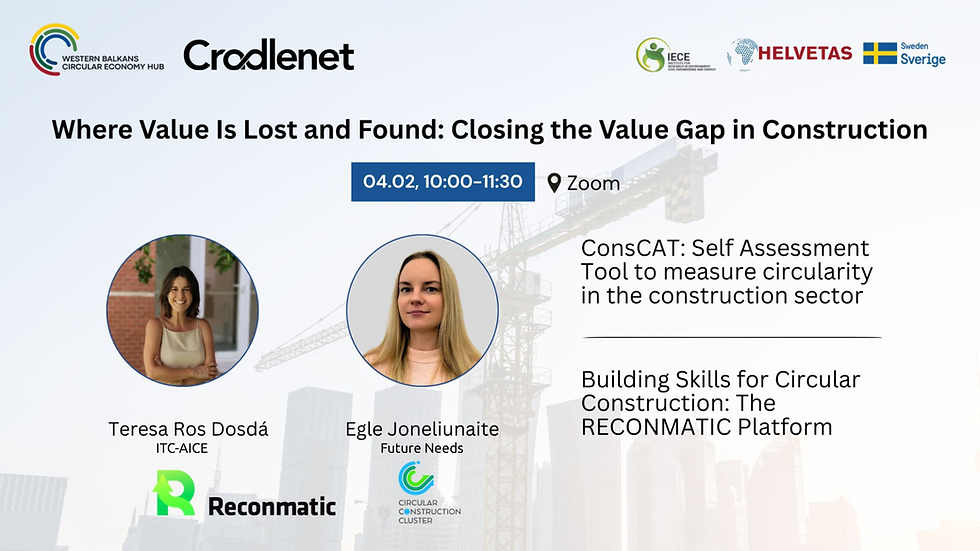RECONMATIC's new paper on automated creation of digital model for end-of-service life buildings
- Jul 4, 2024
- 2 min read
Updated: Nov 11, 2024

The RECONMATIC project proudly announces one more scientific publication, titled "Development of a 3D Digital Model of End-of-Service-Life buildings for improved demolition waste management through automated waste audit". It is co-authored by the RECONMATIC partners participating in work package 3, working on Automation and effective repurposing, deconstruction and demolition: Τhe University of Manchester, Tecnalia, Strabag, Faculty of Civil Engineering, Czech Technical University in Prague and the University of Salford.
The paper presents the development of a 3D digital model of end-of-service-life buildings to facilitate a step change in preparation of pre-demolition protocols that can eliminate problems of inadequate documentation and extensive time spent in preparing pre-demolition audits. The 3D digital model consists of the following four main components:
digitization of paper-based drawings and their conversion to CAD;
automated generation of a 3D digital model from CAD;
corrections to the 3D digital model to account for changes in the lifetime of a building;
a sub-model for performing pre-demolition audit.
The paper proposes the innovative approaches of incorporating a minimal amount of human intervention to overcome numerous difficulties in automated drawing analysis, application of augmented reality (AR) in corrections to the 3D digital model, and data compatibility for pre-demolition audit.

These processes are demonstrated using one building as case study.
Using the digital model, a pre-demolition audit can be prepared in minutes rather than the many days required in current practice without a digital model.
The accurate quantification of the quantities and locations of different demolition waste materials and products in buildings to be demolished will enable a systematic and quantitative evaluation of potentials of material and product reuse and eliminate contamination of different demolition waste streams (which may contain hazardous waste), which is the main cause of environmental degradation and downcycling of demolition waste materials.
The full article is available on Zenodo and on the DMPI Journal "Environments" , as part of the Special Issue Environmental Science and Technologies for the Management of Natural Ecosystems and the Sustainable Development of Urban Areas II.


